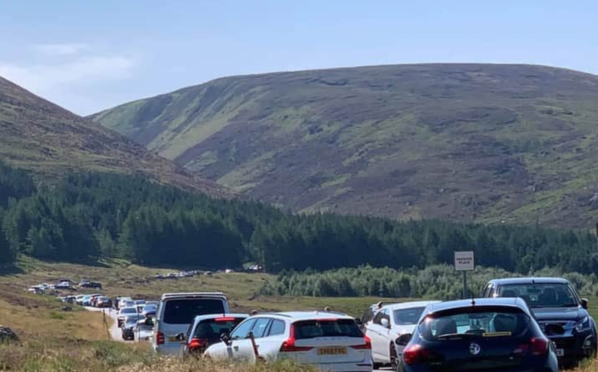Cairngorms chiefs have heard that that “cooped up” Scots unable to stay at closed down campsites have been to blame for the increase in irresponsible behaviour in the wild this summer.
Members of the Cairngorm National Park Authority (CNPA) board met online yesterday to discuss how the problems blighting the region following the initial easing of lockdown restrictions.
Over August, the CNPA had to deal with 143 fires caused by poor behaviour such as irresponsibly using barbecues in unsuitable environments.
In the same period, rangers had to remove 73 bags of rubbish from various beauty spots.
Abandoned campsites were also an issue reported in areas such as Loch Morlich and Loch Muick.
During yesterday’s meeting, CNPA chief executive Grant Moir told members the large influx of visitors towards the end of summer was partly due to Scots wanting to experience the great outdoors, after months of feeling “cooped up” in lockdown.
Mr Moir said: “It has been very busy, but the vast majority of people behaved very well.
“People had been cooped up for a long time and wanted to get into the countryside, however that has led to issues around the park as well.
“One thing that has come up again and again is the issue around fires.
“We have had issues around campsites being left in a bad state.”
Because of high demand on certain areas where car parks filled up and vehicles instead parked dangerously on verges and in passing places, the CNPA established temporary traffic management measures in locations like Loch Muick and Linn of Dee.
Mr Moir said the campsite at Glenmore near Loch Morlich remaining shut “caused us lots of problems”, but said he hoped it will reopen next year.
Pete Crane, head of visitor services, said the authority has learned lessons in recent months, and will now consider what is needed to help better manage the pressure from high numbers of visitors in the future.
He said: “What has become apparent is that we particularly need to have a stronger, clearer message going forward in relation to fires and we need added facilities to deal with increasing numbers of campervans, particularly in relation to waste.
“The work and feedback from this summer has given us an excellent understanding of what worked, what didn’t work and the sorts of investment that we all collectively need to make in the future.
“We will be looking at areas for infrastructure investment with partners this winter as we look to develop visitor management plans for 2021.”
